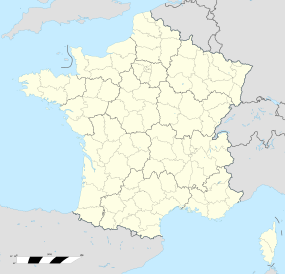Lugdunum

Colonia Copia Claudia Augusta Lugdunum
|
|
| Location | Lyon, France |
|---|---|
| Region | Gallia Lugdunensis |
| Coordinates | 45°45′35″N 4°49′10″E / 45.75972°N 4.81944°ECoordinates: 45°45′35″N 4°49′10″E / 45.75972°N 4.81944°E |
| Type | Roman city |
| Area | 200 hectares |
| History | |
| Builder | Lucius Munatius Plancus |
| Founded | 43 BCE |
| Periods | Roman Republic to Roman Empire |
Colonia Copia Claudia Augusta Lugdunum (modern: Lyon, France) was an important Roman city in Gaul. The city was founded in 43 BC by Lucius Munatius Plancus. It served as the capital of the Roman province of Gallia Lugdunensis and was an important city in the western half of the Roman Empire for centuries. Two emperors, Claudius and Caracalla, were born in Lugdunum. In the time period 69–192 AD the city population could be as large as 50,000 to 100,000. Even figures of up to 200,000 people are proposed by Albert Grenier.
The original Roman city was situated west of the confluence of the Rhône and Saône, on the Fourvière heights. By the late centuries of the empire much of the population was located in the Saône River valley at the foot of Fourvière.
The Roman city was originally founded as Colonia Copia Felix Munatia, a name invoking prosperity and the blessing of the gods. The city became increasingly referred to as Lugdunum (and occasionally Lugudunum) by the end of the 1st century AD. During the Middle Ages, Lugdunum was transformed to Lyon by natural sound change.
Lugdunum is a latinization of the Gaulish *Lugudunon, meaning "Fortress (or hill) of (the god) Lugus" or, alternately "Fortress of the champion" (if *lugus is a common noun cognate with Old Irish lug "warrior, hero, fighter").
The Celtic god Lugus was apparently popular in Ireland and Britain as is found in medieval Irish literature as Lug(h) and in medieval Welsh literature as Lleu (also spelled Llew).
...
Wikipedia

